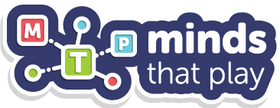
Children At Play Are Doing Hard Work
Children At Play Are Doing Hard Work
Central to the tenet of childhood pedagogy is that children at play are children learning. We’re sure you have even heard the expression at one time or another, that learning through play is the hard “work” of childhood. It’s true. In fact, “play is so important to optimal child development that it has been recognized by the United Nations High Commission for Human Rights as a right of every child. (1) How is it that we seem to have now wandered so far away from the concept of play; often turning to screens for stimulation or scheduling our children into overstimulated, overscheduled and overtired (and in turn overanxious) little ones? It’s time we recognized once again the importance of play and that children at play are doing hard work!
Playtime is a critical learning opportunity for children of any age. Children engaging in free play are learning valuable skills like logic and reasoning and negotiation, skills that will support them throughout their lifetime. A child at play is learning how to build, how to problem solve, they are learning sharing and cooperation skills and they are even developing leadership skills. They are learning how to use their imagination – and when their tower of building blocks collapses – they are also learning about consequences! Play fosters the child’s understanding of the world around them.
The focus of many parents today is to create a more structured learning environment, or alternatively, one that relies heavily on screen time as a replacement for free play. This is, in effect, removing what some experts refer to as a child’s “agency,” or their ability to engage in the critical work of free play. According to a report released by Unicef in 2018, “An important aspect of play is children’s agency and control over the experience. Agency refers to children’s initiative, decision-making and self-choice in play. Ultimately, play should involve some degree of agency, enabling children to take on an active role and ownership in their experiences, as well as recognizing and trusting children to be capable, autonomous, and agents of their own playful learning journeys. (2) We are already seeing the consequences of not taking this approach to learning as children increasingly suffer from anxiety and stress, emotional growth is stunted and even childhood obesity is becoming problematic. Screen time does nothing to foster language and communication skills and increasingly is resulting in long-term addiction to video gaming.
Instead, children at play are fostering their cognitive development, both social and emotional development, their ability to self-regulate and literacy and numeracy skills. Play enhances:
- Language and communication, not just in terms of new vocabulary but also understanding facial expression, body language, physical cues, emotional language and the important skill of listening.
- Colour and pattern recognition and therefore recall and memory development.
- Physical development that fosters eye-hand coordination, muscle development and even skills such as dressing and feeding.
- Social development through interaction with others. Children learn to share, learn to work together and engage in collaborative play, all of which helps enhance imagination, creativity and can contribute toward improved mental health.
In short, the benefits of children at play are benefits that will support them throughout their lifetime. The hard work of children at play results in skills that are in demand in any school or workplace as children mature into adulthood. Whether it’s math, literacy, science, the trades, medicine or law (to name but a few) the foundation of any child’s future can be found in the breadth and depth of their educational experiences with imaginative, free, or gently guided play. The beauty of the process of learning through play is that children don’t even realizing they’re learning! Using games is just one way to encourage “minds that play” because we know minds that play are learning every day!
(1) From: https://pediatrics.aappublications.org/content/119/1/182
(2) From: https://www.unicef.org/sites/default/files/2018-12/UNICEF-Lego-Foundation-Learning-through-Play.pdf
